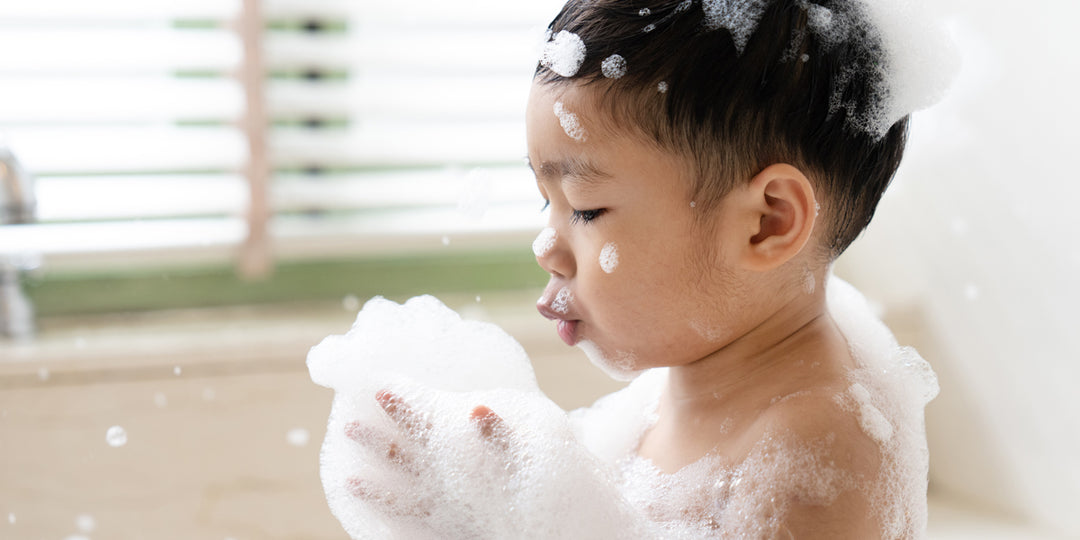Encouraging Creativity in Tweens

“To stimulate creativity, one must develop the childlike inclination for play.”
This insightful quote by world renowned scientist, inventor and creative thinker, Albert Einstein, suggests that he just might have been onto something quite profound.
Einstein understood that young children have a special gift. For them, everything and anything is possible; after all, they believe in the magic of fairies and the wonder of wizards. It’s the reason why Willy Wonka wanted a child and not an adult to inherit his chocolate factory. He needed someone who believed in the power of pure imagination to continue creating his marvellous treats.
What Einstein and Wonka both recognised is that as we leave our childhood behind our imagination and ability to think creatively often gets left behind too. The truly surprising part is just how quickly that happens, as revealed by the George Land/Beth Jarman Creativity test1.
Originally developed for NASA to measure the creative potential of rocket scientists and engineers, the test was applied to 1600 children (aged 4-5), who were asked to come up with new, different and innovative ideas to problems. 98% of the children fell into the highly creative range! Surprised, they tested the same children again, five years later aged 9-10, only to discover that just 30% fell into the same creative genius category. Tested again at 15 years of age, this had dropped to only 12%. By the time we reach adulthood, only 2% achieve creative genius status.
Why Creative Thinking Drops Off
So what is going on with pre-teens (kids aged between 8-12) that makes all that creative thinking slow down? Land and Jarman concluded from their study that creativity is not learned but rather unlearned.
As children reach their middle primary school years, formal education tends to shift from open-ended, play-centred activities to academic learning, with more structured, linear thinking encouraged and rewarded. Unlike early childhood, where the ability to make unique and sometimes zany connections is supported, the school-aged child is increasingly motivated to come up with correct answers to problems, based on information taught to them. Tweens can become less willing to experiment or try alternative solutions to problems.
How Do We Keep Tweens Creative?
Studies show that encouraging creativity in tweens can help them better navigate life’s biggest challenges. So how do we help our pre-teens remain ‘playful’ (as Einstein suggests) and hold onto their creative spark?
Here are some suggestions from experts:
-
Identify a passion
Help your tween discover activities that nurture their imagination. Creativity doesn’t just mean painting a masterpiece or playing a musical instrument like a maestro. So learning how to bake a cake, building a billy cart, taking colouring skills to a new level or writing thoughts and dreams in a journal all count. “Creativity requires kids to solve problems in novel ways, so any activity that lights up this process is creative,” says Jonathan Plucker, a creativity researcher at John Hopkins University2.
-
Give tweens space
Research indicates that people are more creative when they have privacy and are not interrupted. According to Pam Allyn3, author and literacy expert, giving tweens space for creating is important. “The key is for your child to feel like they have power over their space,” she says. Give your tween the space to discover, experiment and improvise without worry about mistakes or hovering supervision.
-
… and free time
It’s important to give your tween unstructured time, without scheduled activities. Being alone with their own thoughts allows them to relax, potter and play, doodle and daydream. While pretend play is important for toddlers and younger kids, daydreaming serves a similar purpose for tweens. It allows them to zone into their own internal world and helps them plan the future, generate ideas, regulate emotions and kick start creativity4.
-
Risks and mistakes are part of life
Help your tween venture out of their comfort zone and understand that it is all right to make mistakes. Take time to reflect on life's lessons. Experts say that normalising mistakes can lessen kid’s fear of failure. It’s also great to encourage experimentation. Get your tween to try different methods to approach a problem or project. Even if you know something will not work, allowing your child to discover this on their own, fosters creative thinking and problem solving skills.
-
Spend time outside
Danish researchers discovered that getting out in nature is not only good for mental health—it can improve creativity, too. Their study found that spending time outdoors can enhance curiosity, encourage flexible thinking, and help tweens recharge5.
Help your tween rediscover their creativity with two new Tiger Tribe products. Designed for young artists looking to improve and extend their colouring skills, Pencil Art - Blend & Shade challenges kids age 8+ to explore and create interesting and vibrant effects.
Based on creating simple lines, dots, swirls and squiggles — Mindful Doodling - Peaceful Patterns is all about the process not the outcome. There is no right or wrong way, so tweens are able to draw freely and respond to the shapes and patterns that emerge and simply enjoy the creative process.
References:
- Land, George & Jarman Beth (1992), Breakpoint and Beyond: Mastering the Future Today. Harpercollins Publishers
- https://jplucker.com/about.shtml
- Allyn, Pam (2011), Your Child’s Writing Life: How to Inspire Confidence, Creativity, and Skill at Every Age. Penguin Random House
- https://letgrow.org/daydreaming/
- Trine Plambech, Cecil C. Konijnendijk van den Bosch (2015), The impact of nature on creativity – A study among Danish creative professionals, Urban Forestry & Urban Greening, Volume 14, Issue 2





Leave a comment